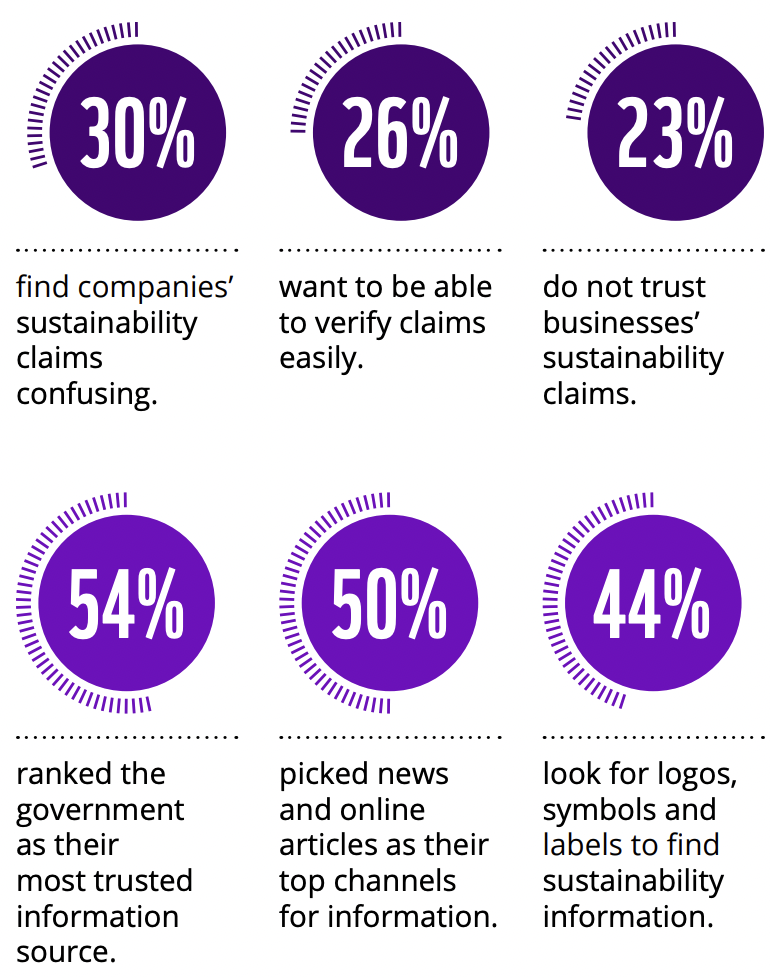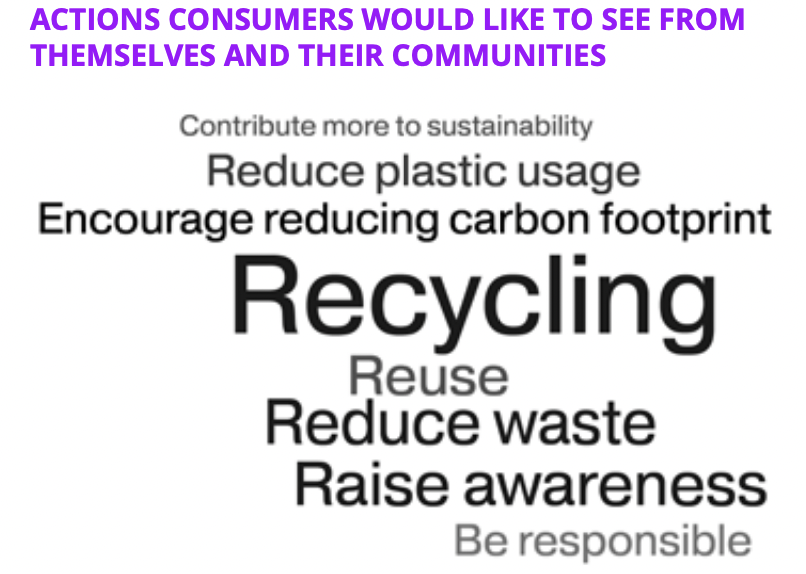Some consumers in Singapore are confused by varying business's sustainability claims, and as a result, do not trust the veracity of their products, a study by Accenture and the World Wide Fund for Nature (WWF) has found.
Titled "Sustainability in Singapore — Consumer and Business Opportunities", the study was carried out to discover what drives consumer purchasing decisions and what are the gaps between consumer demand and business priorities.
500 consumers in Singapore distributed across age, gender and income groups were surveyed.
The responses were supplemented with a social media exercise that spanned over 47,000 conversations with over 12,000 people.
Not enough sustainable options
The study found that majority of consumers (80 per cent) say they care about the environment.
This affects purchasing decisions, with 32 per cent of consumers saying that they would make their decisions based on product sustainability and its environmental impact.
35 per cent of consumers are also willing to pay up to 10 per cent more for sustainable alternatives.
However, Singapore consumers also want a better value proposition — this includes ingredients, components and packaging with low carbon footprints, and better performance and last mile delivery.
Half of consumers said they do not have enough variety of sustainable options to choose. 33 per cent also expect sustainable products to be of better quality.
Distrust of businesses
Despite this, numerous consumers have problems with businesses' claims about their products' or supply chains' sustainability.
A third of consumers polled said that non-standard and varying sustainability claims are confusing, while 23 per cent claimed that they do not trust businesses' sustainability claims at all.
Meanwhile, more than half of consumers (54 per cent) view the government as a trusted source of information for sustainability.
44 per cent also look for logos, symbols and labels to find sustainability information.
According to Accenture and WWF, the findings show that businesses can benefit from standardising the benchmarks used for sustainability claims, or develop these in partnership with the government and independent organisations to improve credibility.
 Photo from Accenture and WWF
Photo from Accenture and WWF
Aside from the government, consumers also believed that the community as a whole should play a bigger role.
Three-quarters want individuals and communities to behave more sustainably, with 67 per cent pointing out recycling as the top action people can take.
 Photo from Accenture and WWF
Photo from Accenture and WWF
Related story
Top photo from Tang Ming Tung / Getty Images
If you like what you read, follow us on Facebook, Instagram, Twitter and Telegram to get the latest updates.
